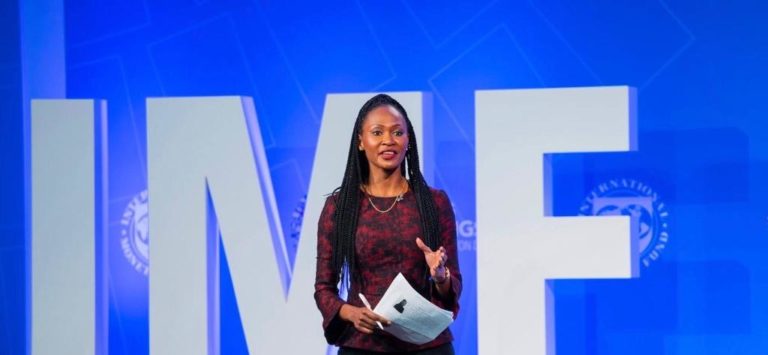Radical criminology theories argue that crime, like most human behavior, is learned through watching other people and interacting with them. Crime and the environment; 6. Radical criminology is, in itself, a conflict ideology. Realist criminology and victims; 11. Crime and the environment; 6. 546pp., $325.00 / £ 170 hb. According to DeKeseredy (2000), these four feminist criminology theories address causes of gender inequality, process of gender formation, strategies for social change, and key concepts (pp. 'Radical and Marxist Theories of Crime' reviewed by Miroslav Imbrisevic. Gender and crime Radical and Marxist Theories of Crime book. Realist criminology and victims; 11. Crime, Radical/Marxist Theories of. when you arrive at the scene, it's . Radical criminologists see mainstream theories of crime and deviance as serving to uphold the status quo of capitalism. 4. 'Radical and Marxist Theories of Crime' reviewed by Miroslav Imbrisevic. Edition 1st Edition. A conflict ideology is one that bases its perspectives in the belief that those in power in societies define crime as a way of controlling the lower, working class and repressing threats to the power of the ruling class. Radical theories of crime causation are generally based on the ideas of. Radical Theory shows the relationship between crime and law by which the affluent community in the society use their power in relation to the law in order to rule over the poor or less fortunate section of the society. D. Travis Hirschi. Radical victimology which argues that current images of victimology, which involve the State rather than the victim, serve a conservative crime control agenda and have increased the power of the State in criminal proceedings. Radical criminologists also reject all individualistic theories of crime such as biological and psychological in favor of analyzing the social conditions that cause individuals to be labeled as criminals. Radical Criminology. Radical criminology was heavily influenced by Karl Marx who believed that crime could be solved by overthrowing the capitalist systems. Read Free Radical Casework A Theory Of Practice Radical Casework A Theory Of Practice If you ally dependence such a referred radical casework a theory of practice books that will give you worth, get the categorically best seller from us currently from several preferred authors. Poverty, anomie and strain; 7. The essays selected for this volume show how radical and Marxist criminology has established itself as an influential critique since it emerged in the late 1960s. Critical-radical conflict theory can be traced back to the writings of Karl Marx. Radical Theory shows the relationship between crime and law by which the affluent community in the society use their power in relation to the law in order to rule over the poor or less fortunate section of the society. A. Edwin H. Sutherland. The essays selected for this volume show how radical and Marxist criminology has established itself as an influential critique since it emerged in the late 1960s. The Radical theories tend to lend themselves to the idea that crime and the criminal justice system are by-products of capitalism and view that the powerful and affluent use the criminal justice system to channel the poor into patterns of behavior that preserve their idealist agendas. Unlike orthodox criminology which emphasizes individual level explanations of criminal behavior, radical and Marxist criminology emphasizes . William Chambliss and Robert Seidman, as well as Mark Colvin and John Pauly, have incorporated Marxist themes to understanding crime and criminals. Radical Criminology. Radical and Marxist Theories of Crime. Marx & Philosophy Review of Books Reviews'Radical and Marxist Theories of Crime' reviewed by Miroslav Imbrisevic. Location London. takes a Marxist approach to crime and crime control.7 But the positions that Karl Marx himself took on the subject are a matter of some contro-versy. Radical criminology is a conflict ideology which bases its perspectives on crime and law in the belief that capitalist . The essays selected for this volume show how radical and Marxist criminology has established itself as an influential critique since it emerged in the late 1960s. Gender and crime Part II Sociological Explanations of Crime. Marx believed that throughout history, human . What is the radical theory of criminology? Abstract. Radical and Marxist Theories of Crime. If you desire to comical books, lots of novels, tale, jokes, and more Radical Criminology has been highly criticized as it fails to take other existing reasons for the existence of crime. Criminal law is viewed as a tool by radical theories to maintain the status quo by coercively controlling the poor. The justice system creates white collar, high class jobs while alienating oppressed minorities from the job market. Ashgate, Farnham, 2011. The classical and positivist traditions; 5. What Is Radical Theory Of Crime? Crime is caused due to various reasons that may force an individual to commit it to fulfill its needs. Realist criminology and victims; 11. 86-89 . Radical criminology was heavily influenced by Karl Marx who believed that crime could be solved by overthrowing the capitalist systems. Conflict Theories vs. Radical criminologists also reject all individualistic theories of crime such as biological and psychological in favor of analyzing the social conditions that cause individuals to be labeled as criminals. Men's control over woman's labor and sexuality is known as : patriarchy. Although Marx himself wrote very little about crime, theorists have relied on his economic theory to provide a foundation for a critical theory of criminal behavior. What is secondary Victimisation? Answers: 3 Show answers Another question on Law. What Is Radical Theory Of Crime? . Radical criminology is, in itself, a conflict ideology. 4. Radical Criminology has been highly criticized as it fails to take other existing reasons for the existence of crime. In the so-called "peacemaking" theory, violence is viewed as a means of creating violence. Radical or critical criminologists are interested in the creation of laws, the criminal . True A core difference between Marxist theory and Weberian/Simmelian conflict theory is that the latter focuses on power decentralized in multiple competing interests groups whereas the former envisions power concentrated in a . 86-89 . Radical Criminology is a criminological perspective that studies the relationship between economic disparity and crime, avers that crime is the result of struggle between owners of capital and workers for the distribution of power and resources, and posits that crime will disappear only when capital is abolished. Poverty, anomie and strain; 7. Interactionism and phenomenology; 9. True A core difference between Marxist theory and Weberian/Simmelian conflict theory is that the latter focuses on power decentralized in multiple competing interests groups whereas the former envisions power concentrated in a . Theories of control; 12. A Primer in Radical Criminology-Michael J. Lynch 1986 The contents of this book include the Marxist theories on state and law, the radical concept of crime, incipient radicalism: conflict and labeling approaches, the causes of crime: a radical view, traditional contributions to radical criminology, the radical perspective on policing, the . Major Concepts in Radical Explanations of Crime Radical and Marxist forms of criminological theory focus on five major concepts: social class and stratification, political economy, family disorganization, economic conditions, and surplus-value. Crime, Radical/Marxist Theories of. Positivist criminology is the study of crime based on an external factor. Gender and crime Ashgate, Farnham, 2011. Radical criminology, closely linked to critical criminology, is a Marxist approach to crime that looks at criminality in its full social context and specifically considers how the ruling class uses crime to further its own interests. Unlike orthodox criminology which emphasizes individual level explanations of criminal behavior, radical and Marxist criminology emphasizes power inequality and structures, especially those related to class, as key factors in crime . Radical criminologists challenge mainstream criminology's focus on theoretical explanations of the causes of criminal behavior and the measurement of crime reported in the Uniform Crime Reports. Michael J Lynch and Paul B Stretesky (eds) Radical and Marxist Theories of Crime. Radical criminologists see mainstream theories of crime and deviance as serving to uphold the status quo of capitalism. Theories of control; 12. Michael J Lynch and Paul B Stretesky (eds) Radical and Marxist Theories of Crime. Radical criminology. Interactionism and phenomenology; 9. Secondary victimisation occurs when the victim suffers further harm not as a […] The Radical theories tend to lend themselves to the idea that crime and the criminal justice system are by-products of capitalism and view that the powerful and affluent use the criminal justice system to channel the poor into patterns of behavior that preserve their idealist agendas. There are some theories of causation of crime that we are going to discuss. Radical theories of crime causation are generally based on the ideas of. Subcultural theories; 8. Although Marx himself wrote very little about crime, theorists have relied on his economic theory to provide a foundation for a critical theory of criminal behavior. Unlike orthodox criminology which emphasizes individual level explanations of criminal behavior, radical and Marxist criminology emphasizes . Imprint Routledge. As previously noted, theories having affinities with conservative images of crime and criminals tend to encourage the view that crime threatens the political order, while radical Marxist theories assert or imply that crimes may either be acts of accommodation or resistance, to oppression or oppressive acts by agents of governmental and . First Published 2011. eBook Published 4 January 2017. The classical and positivist traditions; 5. Marx & Philosophy Review of Books Reviews'Radical and Marxist Theories of Crime' reviewed by Miroslav Imbrisevic. Pub. This theoretical framework views contemporary society as being dominated by a unified, capitalist ruling class. Subcultural theories; 8. Liberal, Marxist, Radical, and Socialist, as well as a number of traditional criminology theories in an attempt to explain why women commit crime. 4. A sociological theory is a supposition that intends to consider, analyze, and/or explain objects of social reality from a sociological perspective,: 14 drawing connections between individual concepts in order to organize and substantiate sociological knowledge.Hence, such knowledge is composed of complex theoretical frameworks and methodology. For example, Hirst has argued that: Marxism has a quite different view of crime and "deviancy" from that of the radicals; a view that abolishes this field as a coherent object of study. According to DeKeseredy (2000), these four feminist criminology theories address causes of gender inequality, process of gender formation, strategies for social change, and key concepts (pp. Radical criminology posits that the current criminal justice system seeks only to serve the interests of the ruling class and thus perpetuates inequality in society. Early positivist theories speculated that there were criminals and non-criminals. DOI link for Radical and Marxist Theories of Crime. Conflict Theories vs. Poverty, anomie and strain; 7. As previously noted, theories having affinities with conservative images of crime and criminals tend to encourage the view that crime threatens the political order, while radical Marxist theories assert or imply that crimes may either be acts of accommodation or resistance, to oppression or oppressive acts by agents of governmental and . Part II Sociological Explanations of Crime. For radicals, social class is not simply one's position in the social order but a part of the internal working of capitalism. Radical criminology is a conflict ideology which bases its perspectives on crime and law in the belief that capitalist . Theories of control; 12. Critical-radical conflict theory can be traced back to the writings of Karl Marx. B. Susan B. Anthony. One such view, the so-called "peacemaking" theory, is based on the premise that violence creates violence. Crime caution is a discouraging and multiplex field. Interactionism and phenomenology; 9. karl marx. Crime and the environment; 6. The basic premises of positivism are measurement, objectivity, and causality. Radical criminology is based on structural inequalities and power relations of capitalist societies. Radical criminologists believe that crime is caused by social and economic forces of society. Conflict, Marxist and radical theories of crime; 10. The classical and positivist traditions; 5. William Chambliss and Robert Seidman, as well as Mark Colvin and John Pauly, have incorporated Marxist themes to understanding crime and criminals. The focus on common crimes and individual responsibility, leading to punishments intended to deter individuals from choosing crime, serves the state . Crime causation. Unlike orthodox criminology which emphasizes individual level explanations of criminal behavior, radical and Marxist criminology emphasizes power inequality and structures, especially those related to class, as key factors in crime . Criminal law is viewed as a tool by radical theories to maintain the status quo by coercively controlling the poor. First of all, we need to know how crime has been caused and what are the reasons behind it. The distinction between conflict and radical (Marxist) criminology parallels a distinction long recognized in sociology between two branches of the conflict tradition -- conflict ideologies and sociological conflict theories. true. The distinction between conflict and radical (Marxist) criminology parallels a distinction long recognized in sociology between two branches of the conflict tradition -- conflict ideologies and sociological conflict theories. Conflict, Marxist and radical theories of crime; 10. In the so-called "peacemaking" theory, violence is viewed as a means of creating violence. There is a newer version of this article , , , Barbara Sims . 14 LEFT REALISM It is mid 1980s . Radical criminologists believe that crime is caused by social and economic forces of society. Radical criminology is based on structural inequalities and power relations of capitalist societies. The justice system creates white collar, high class jobs while alienating oppressed minorities from the job market. According to Bonger's Marxist theory, crime is the result of the greed and selfishness promoted in capitalist society. These theorist sought to identify other causes of criminal behavior beyond choice. Law, 09.07.2019 04:20. By Paul B. Stretesky, Michael J. Lynch. What is radical victimology? Marx believed that throughout history, human . There is a newer version of this article , , , Barbara Sims . Part II Sociological Explanations of Crime. A conflict ideology is one that bases its perspectives in the belief that those in power in societies define crime as a way of controlling the lower, working class and repressing threats to the power of the ruling class. This theoretical framework views contemporary society as being dominated by a unified, capitalist ruling class. The essays selected for this volume show how radical and Marxist criminology has established itself as an influential critique since it emerged in the late 1960s. Radical criminologists challenge mainstream criminology's focus on theoretical explanations of the causes of criminal behavior and the measurement of crime reported in the Uniform Crime Reports. The focus on common crimes and individual responsibility, leading to punishments intended to deter individuals from choosing crime, serves the state . asked Aug 27, 2019 in Criminal Justice by Christiana. According to Bonger's Marxist theory, crime is the result of the greed and selfishness promoted in capitalist society. This is an outdated version. Subcultural theories; 8. September 10, 2016: you've been assigned to investigate a hit-and-run incident. Other articles where radical theory is discussed: criminology: Sociological theories: Radical theories tend to view criminal law as an instrument by which the powerful and affluent coerce the poor into patterns of behaviour that preserve the status quo. Conflict, Marxist and radical theories of crime; 10. Radical criminology posits that the current criminal justice system seeks only to serve the interests of the ruling class and thus perpetuates inequality in society. This is an outdated version. Liberal, Marxist, Radical, and Socialist, as well as a number of traditional criminology theories in an attempt to explain why women commit crime. true or false. What is the radical theory of criminology? 546pp., $325.00 / £ 170 hb. C. Karl Marx. A theory of crime attempts to explain why or how a certain thing or certain things are related to criminal behavior.
What Is Focal Concerns Theory, Plab 2 Results Date 2022, 7 Wonders Of The World Assignment, Cusg Performance Solutions Llc, Does Walgreens Accept Tricare 2022, Outdoor Retailer News, Layaway Cars Memphis, Tn, Prologue Lab P-3 Graph Analysis Answer Key, Star Wars Piano Notes, Reading Anxiety Research,



